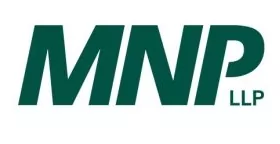The Canadian Securities Administrators recently issued for
comment a package of proposed amendments to existing
continuous disclosure, prospectus and audit committee rules and
related policies, intended "to make the disclosure
requirements for venture issuers more suitable and manageable for
issuers at their stage of development." The proposals are open
for comment until August 20, 2014.
This represents the CSA's third attempt in recent years to
streamline and reduce the rules for venture issuers, after earlier
proposals in July 2011 and September 2012 to introduce a new
standalone disclosure instrument. Although most respondents to the
previous proposals agreed with their underlying objective, others
believed all entities participating in Canada's capital markets
should provide similar information to investors, regardless of
their size or circumstances. Others disagreed on the kinds of
concessions that could appropriately be made for venture issuers,
or felt that the process of determining how to comply with new
disclosure requirements – even if those requirements were
ultimately less demanding than their existing practices –
would outweigh the benefits. With the new proposals, the CSA hopes
to obtain greater consensus by proceeding instead through a series
of specific, incremental amendments to existing rules. This would
presumably reduce the work for preparers in analyzing the impact of
the changes and in realizing their benefits.
Quarterly reporting
The new proposals have discarded the most striking aspect of the
previous proposals, to require venture issuers to prepare interim
reports just once a year, at the six month point, rather than
quarterly. IAS 34 sets out the principles and minimum content for
entities preparing interim financial reports under IFRS, but leaves
it to regulators in each jurisdiction to prescribe which entities
should be required to publish such interim reports, or how often;
other jurisdictions commonly only require six-monthly reporting,
even for the largest entities. The CSA now proposes a more modest
concession in this area, to permit (although not require) venture
issuers without significant revenue to fulfil the quarterly
reporting requirement by preparing and filing a streamlined
disclosure document, referred to as "quarterly
highlights", in each of their first three quarters. The
quarterly highlights would consist primarily of a short discussion
about the venture issuer's operations and liquidity.
This reflects the reality that formal financial statements are
often largely irrelevant to monitoring the key risks attaching to
an entity at an early stage of its development. In its request for
comment, the CSA states: "Venture issuers that have
significant revenue would be required to provide existing interim
MD&A for interim periods because we think that larger venture
issuers should provide more detailed disclosure," and asks for
specific input on this point. Some commentators may take the view
that this criterion alone (one apparently subject to some
subjectivity) should not be the trigger for distinguishing between
different disclosure obligations; one can readily think of
circumstances in which an entity without significant revenue (but
with the promise of great prospects) might hold greater risks for
investors than an entity with significant (but stable and
predictable) revenue.
Other matters
The CSA also proposes the following, among other things:
- to reduce the instances in which venture issuers must file Business Acquisition Reports (BARs) and to eliminate the requirement that BARs filed by venture issuers must include pro forma financial statements.
- to amend executive compensation disclosure requirements, reducing the number of individuals for whom disclosure is required from a maximum of five to a maximum of three (the CEO, CFO and one additional highest-paid executive officer), reducing the number of years of disclosure from three to two, and eliminating the requirement for venture issuers to calculate and disclose the grant date fair value of stock options and other share-based awards in the summary compensation table.
- to reduce from three to two the number of years of audited financial statements required in an initial public offering (IPO) prospectus for an issuer that will become a venture issuer on completing its IPO.
- to require venture issuers to have an audit committee consisting of at least three members, the majority of whom could not be executive officers, employees or control persons of the issuer. The CSA notes that this would not be a new requirement for TSX Venture Exchange listed issuers, which are already required to meet an almost identical requirement under that exchange's policies.
Overall, the CSA thinks "the tailoring of venture issuer
disclosure will enhance informed investor decision making for the
venture issuer market by improving the quality of information
available to investors while reducing the burden of preparation for
venture issuers...The Proposed Amendments will eliminate some
disclosure obligations; however, we think that those eliminated
obligations may be of less value to venture issuer investors and
that the Proposed Amendments will result in more relevant
disclosure for those investors. The resulting streamlined
disclosure should also make it easier for venture issuer investors
to read disclosure documents and locate key
information."
The CSA adds that the reduced requirements will "allow
venture issuer management more time to focus on the growth of the
business." Most readers will likely think that the proposals
are too minimal to make a significant difference in this respect,
and some may be disappointed that they do not ask investors to step
back and consider the true risks of investing in venture issuers to
the same degree as the earlier proposals. Still, if only for that
reason, it's difficult to envisage the new proposals evoking a
majority of opposing views and they will certainly be beneficial in
some situations.
The content of this article is intended to provide a general guide to the subject matter. Specialist advice should be sought about your specific circumstances.


